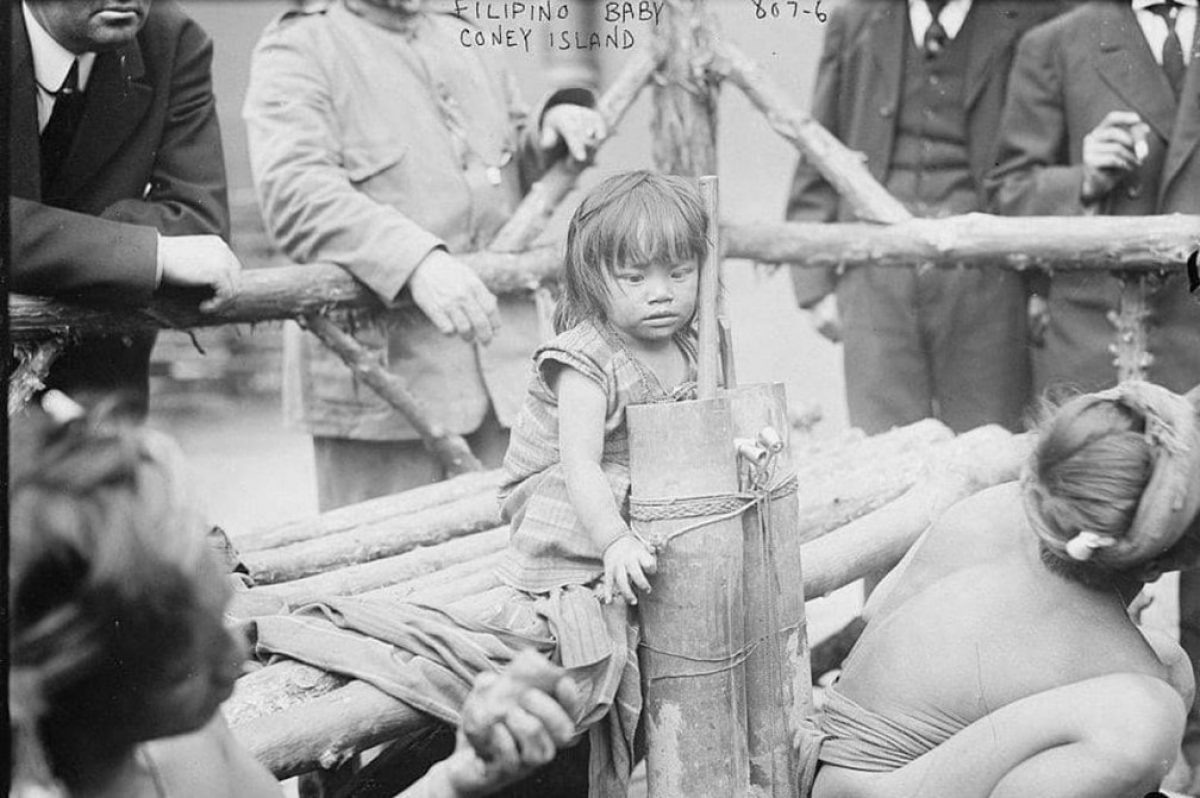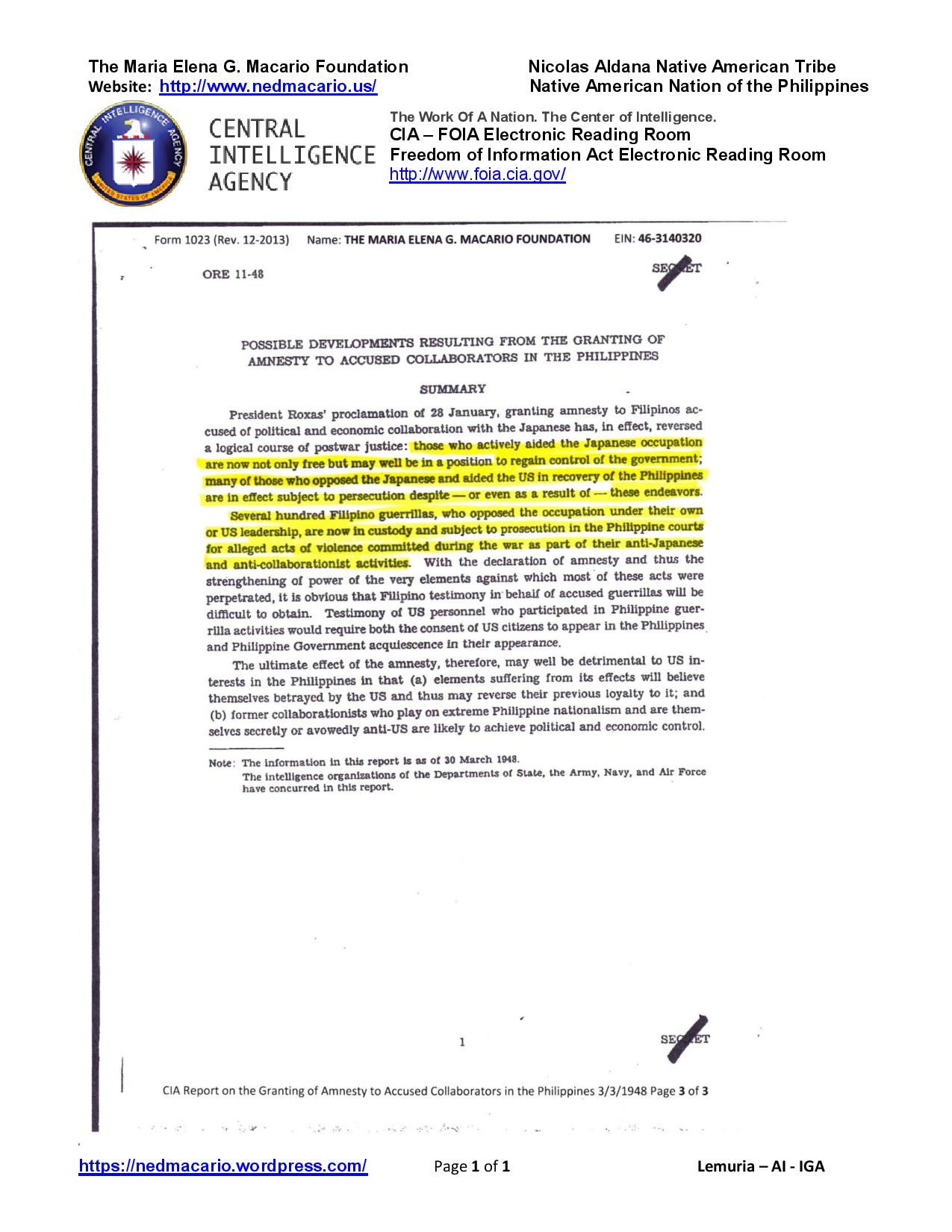NOVEMBER – NATIVE AMERICAN HERITAGE MONTH
“Three things you cannot hide for long: the sun, the moon and the TRUTH.” – Buddha
SUMMARY
President Roxas’ proclamation of 28 January, granting amnesty to Filipinos accused of political and economic collaboration with the Japanese has, in effect, reversed a logical course of postwar justice: those who actively aided the Japanese occupation are now not only free but may well be in a position to regain control of the government; many of those who opposed the Japanese and aided the US in recovery of the Philippines are in effect subject to persecution despite – or even as a result of – these endeavors.
Several hundred Filipino guerrillas, who opposed the occupation under their own or US leadership, are now in custody and subject to prosecution in the Philippine courts for alleged acts of violence committed during the war as part of their anti-Japanese and anti-collaborationist activities.
With the declaration of amnesty and thus the strengthening of power of the very elements against which most of these acts were perpetrated, it is obvious that Filipino testimony in behalf of accused guerillas will be difficult to obtain.
Testimony of US personnel who participated in Philippine guerilla activities would require both the consent of US citizens to appear in the Philippines AND the Philippine Government (pro-Japanese) acquiescence in their appearance.
The ultimate effect of the amnesty, therefore, may well be detrimental to US interests in the Philippines in that:
- Elements suffering from its effects will believe themselves betrayed by the US and thus may reverse their previous loyalty to it; and
- FORMER COLLABORATIONISTS who play on extreme Philippine nationalism and are themselves secretly or avowedly ANTI-US are likely to achieve political and economic control.
Note: The information in this report is as of 30 March 1948.
The intelligence organizations of the Departments of State, the Army, Navy and Air Force have concurred in this report.

